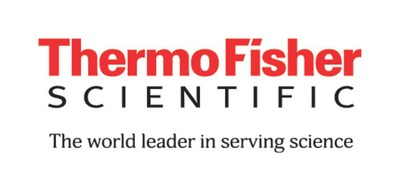WALTHAM, Mass., April 19, 2017 /PRNewswire/ -- Thermo Fisher Scientific Inc. today announced that results from the multi-center Procalcitonin MOnitoring SEpsis (MOSES) Study have been published in the May 2017 print issue of Critical Care Medicine. Researchers from the study, titled "Serial Procalcitonin Predicts Mortality in Severe Sepsis Patients: Results From the Multicenter Procalcitonin MOnitoring SEpsis (MOSES) Study," investigated the use of the B·R·A·H·M·S PCT (procalcitonin) assay to assess risk for 28 day all-cause mortality for patients diagnosed with severe sepsis or septic shock in 13 U.S. investigational sites.

Results from the multi-center study showed that patients with a decrease in PCT less than or equal to 80 percent during the first four days following diagnosis of severe sepsis or septic shock had a two-fold increased risk of death as compared to those who experienced a decrease in PCT greater than 80 percent1. The study also found that a baseline PCT measurement greater than 2.0 ng/mL is an additional mortality risk factor when evaluating PCT measurements on subsequent days1.
"Given the significant amount of sepsis-related deaths in the United States, there is a need for a more rigorous and effective approach to monitoring the progression of this syndrome in patients," said lead principal investigator, Nathan I. Shapiro, M.D., MPH, attending physician at the department of emergency medicine at Beth Israel Deaconess Medical Center in Boston. "Through the MOSES study, my fellow investigators and I have gained a better understanding of how serial PCT levels can be measured in a hospital setting to further risk-stratify mortality risk."
"We are proud to partner with Dr. Nathan Shapiro, Dr. Philipp Schuetz, and all the investigators of the MOSES trial, and support their initiatives in securing publication of this study," said Lonnie Shoff, President of the Clinical Diagnostics Division at Thermo Fisher Scientific. "These clinical results further validate and help shed light on the critical role PCT plays in the risk assessment for patients diagnosed with severe sepsis or septic shock. We look forward to continuing the conversation around the importance of sepsis awareness and the impact PCT can have in septic patient management."
As a result of the MOSES study, Thermo Fisher Scientific received expanded FDA clearance for its B·R·A·H·M·S PCT biomarker assay for sepsis risk assessment. Under the expanded clearance, PCT measurements can be obtained in emergency departments and hospital wards prior to admission to the intensive care unit. Additionally, the clearance helped the Thermo Fisher Scientific license partners, Roche Diagnostics USA and bioMérieux to achieve FDA clearance for the Roche ELECSYS B·R·A·H·M·S PCT and bioMérieux VIDAS B·R·A·H·M·S PCT assays in just 90 days, further expanding access to PCT in the United States. Physicians can assess the decrease in PCT levels using the online calculator at www.brahms-pct-calculator.com.
About Sepsis
Sepsis is a systemic inflammatory response to infection with some degree of organ dysfunction that can progress to organ failure and death. Each year, more than 266,000 deaths in the U.S. are attributed to sepsis (2009). It is the sixth most common principal diagnosis in the U.S., accounting for more than 1.6 million hospital stays. It is the most costly inpatient diagnosis, with aggregate annual hospital costs totaling over $23 billion (2013). Early identification and intervention are crucial to improving sepsis outcomes, making rapid, more reliable detection a national, if not global, imperative. To learn more about sepsis, please visit: www.thermofisher.com/aboutsepsis.
About Procalcitonin (PCT)
In healthy people, Procalcitonin (PCT) is produced in thyroid cells as a precursor for the hormone calcitonin and is nearly undetectable in human blood. However, bacterial infections cause PCT to be produced by almost every organ of the body, resulting in a rapid rise of PCT levels in the blood. Viral infections very rarely, and not to the same level, cause this increase in PCT blood levels. The level of PCT in the blood is a reflection of the severity of bacterial infection, ranging from slightly elevated concentrations in infections with minor systemic inflammatory response to very high values in cases of severe sepsis and septic shock. Once an infection is under control, PCT levels decrease rapidly. PCT is intended for use in conjunction with other laboratory findings and clinical assessments to aid in the risk assessment of critically ill patients on their first day of Intensive Care Unit (ICU) admission for progression to severe sepsis and septic shock.
About Thermo Fisher Scientific
Thermo Fisher Scientific Inc. is the world leader in serving science, with revenues of $18 billion and more than 55,000 employees globally. Our mission is to enable our customers to make the world healthier, cleaner and safer. We help our customers accelerate life sciences research, solve complex analytical challenges, improve patient diagnostics and increase laboratory productivity. Through our premier brands Thermo Scientific, Applied Biosystems, Invitrogen, Fisher Scientific and Unity Lab Services we offer an unmatched combination of innovative technologies, purchasing convenience and comprehensive support. For more information, please visit www.thermofisher.com.
1 MOSES Clinical Trial Data. On file Thermo Fisher Scientific.
To view the original version on PR Newswire, visit:http://www.prnewswire.com/news-releases/multi-center-clinical-study-confirms-decreased-levels-of-procalcitonin-as-an-independent-predictor-of-mortality-in-patients-with-severe-sepsis-and-septic-shock-300441973.html
SOURCE Thermo Fisher Scientific Inc.





